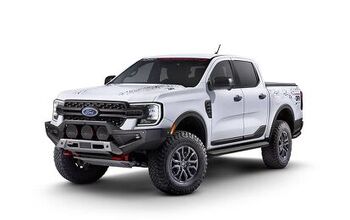People Are Getting Rich From Electric Vehicles, But Not in the Way You'd Think

Automakers have promised us a near future filled with all the electric and plug-in hybrid vehicles we could ever want and, of course, time will tell whether that dream sinks or swims.
Key to keeping the electric momentum going is a combination of growing demand, which automakers are banking on in the future, and steadily declining production costs. A company getting into the EV game might be willing to lose money on a niche vehicle, but not an entire fleet.
Still, the promises are out there, and the models are starting to roll out. The green tide, whether it ultimately makes electricity the dominant source of automotive propulsion or not, is spurring a different kind of green wave — but not for automakers. This wave is made of cold, hard cash, and it’s soaking careful investors.
The money is being made thanks to a chemical element that’s also a color: cobalt. A crucial ingredient in the construction of lithium-ion batteries, the material can be traded like any other commodity. As for its value, well, you’ll wish your Christmas stocking was crammed with it.
Yesterday, the London Metal Exchange listed the cash price of cobalt at $49,750 per ton. At the beginning of December, the price hovered around $30,000 per ton, which is more or less the element’s average price going back to 2012. The dramatic uptick in price isn’t so much due to demand, but anticipated demand. Naturally, savvy investors are buying up as much as possible and sitting on it, waiting for its value to peak.
Some overseas investment companies have reportedly stockpiled large quantities.
Jeff Schuster, senior vice president of forecasting with LMC Automotive, told Automotive News that hype over self-driving vehicles — which will be electric when they arrive — is helping spur the cobalt rush. The amount of cobalt found in a battery pack isn’t tiny, and needs to be mined in huge quantities to fulfill anticipated demand for EVs.
Roughly 40 percent of the world’s mined cobalt ends up in rechargeable batteries, a number that’s expected to rise to 55 percent by 2019.
“That all means more demand for cobalt and the need to find additional sources of this rare chemical element,” Schuster said, who cautioned that the get-rich-quick scheme will probably has a short lifespan.
“Demand will most certainly increase for cobalt, which is good for those that have invested in it,” he said. “However, increased demand will lead to additional volume or new ways to extract and produce it, which could lower the price.”
[Image: General Motors]

More by Steph Willems
Latest Car Reviews
Read moreLatest Product Reviews
Read moreRecent Comments
- SCE to AUX All that lift makes for an easy rollover of your $70k truck.
- SCE to AUX My son cross-shopped the RAV4 and Model Y, then bought the Y. To their surprise, they hated the RAV4.
- SCE to AUX I'm already driving the cheap EV (19 Ioniq EV).$30k MSRP in late 2018, $23k after subsidy at lease (no tax hassle)$549/year insurance$40 in electricity to drive 1000 miles/month66k miles, no range lossAffordable 16" tiresVirtually no maintenance expensesHyundai (for example) has dramatically cut prices on their EVs, so you can get a 361-mile Ioniq 6 in the high 30s right now.But ask me if I'd go to the Subaru brand if one was affordable, and the answer is no.
- David Murilee Martin, These Toyota Vans were absolute garbage. As the labor even basic service cost 400% as much as servicing a VW Vanagon or American minivan. A skilled Toyota tech would take about 2.5 hours just to change the air cleaner. Also they also broke often, as they overheated and warped the engine and boiled the automatic transmission...
- Marcr My wife and I mostly work from home (or use public transit), the kid is grown, and we no longer do road trips of more than 150 miles or so. Our one car mostly gets used for local errands and the occasional airport pickup. The first non-Tesla, non-Mini, non-Fiat, non-Kia/Hyundai, non-GM (I do have my biases) small fun-to-drive hatchback EV with 200+ mile range, instrument display behind the wheel where it belongs and actual knobs for oft-used functions for under $35K will get our money. What we really want is a proper 21st century equivalent of the original Honda Civic. The Volvo EX30 is close and may end up being the compromise choice.


































Comments
Join the conversation
I took a look at some patents related to new electrode technology and I'm not so sure cobalt is required. They list alternative materials. I need to study the documents to be sure, but don't have the time right now.
You can make LiIon batteries without cobalt. Energy density suffers somewhat, but it can be done with manganese and other materials. . .